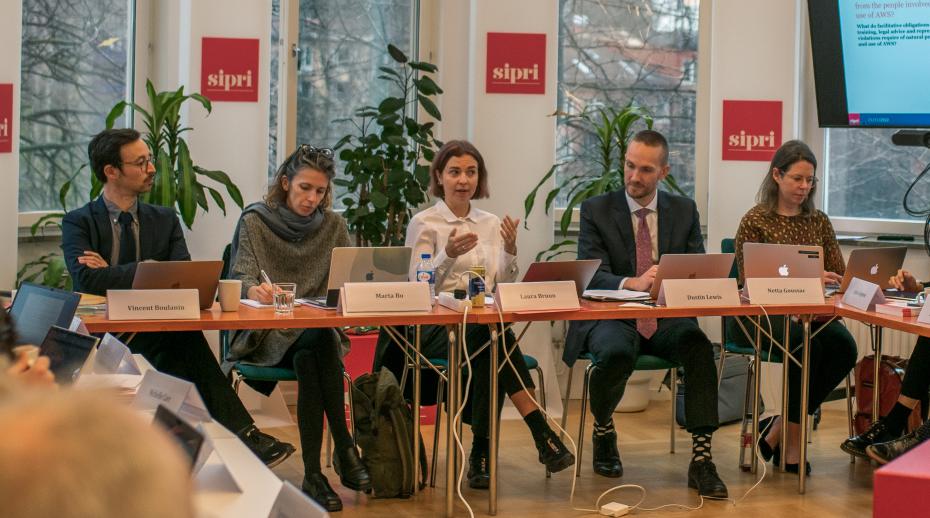
On 10–11 November, SIPRI hosted an expert workshop entitled ‘Compliance with IHL in the Development and Use of AWS’. The workshop took place in person in Stockholm.
It is undisputed that when autonomous weapon systems (AWS) are developed and used, this must be done in compliance with international humanitarian law (IHL). It is also well established that compliance with IHL requires that human–machine interaction is taken into account. However, how the rules of IHL should be interpreted and applied in the context of AWS remains, in some respects, unclear or disputed. Some states have called for more focused work on IHL in relation to AWS.
The discussions at the workshop aimed to generate a deeper and common understanding of what IHL requires, permits and prohibits as to the development and use of AWS, based on previous SIPRI reports on AWS and IHL and accountability for IHL violations involving AWS. The two-day workshop generated insights on two questions: (a) what does IHL prohibit or permit in terms of design and use of AWS? and (b) what does HL require from the natural persons involved in the development and use of AWS? These questions are critical for clarifying and developing the normative and operational framework governing AWS.
The workshop brought together 30 experts including legal advisors from various governments and international organizations, such as the North Atlantic Treaty Organization (NATO) and the International Committee of the Red Cross (ICRC), as well as selected legal scholars.
Findings from this workshop will contribute to a forthcoming SIPRI publication that will map areas of convergence and divergence in relation to interpretative questions around IHL compliance in the context of AWS.
The workshop was conducted under the Chatham House Rule.